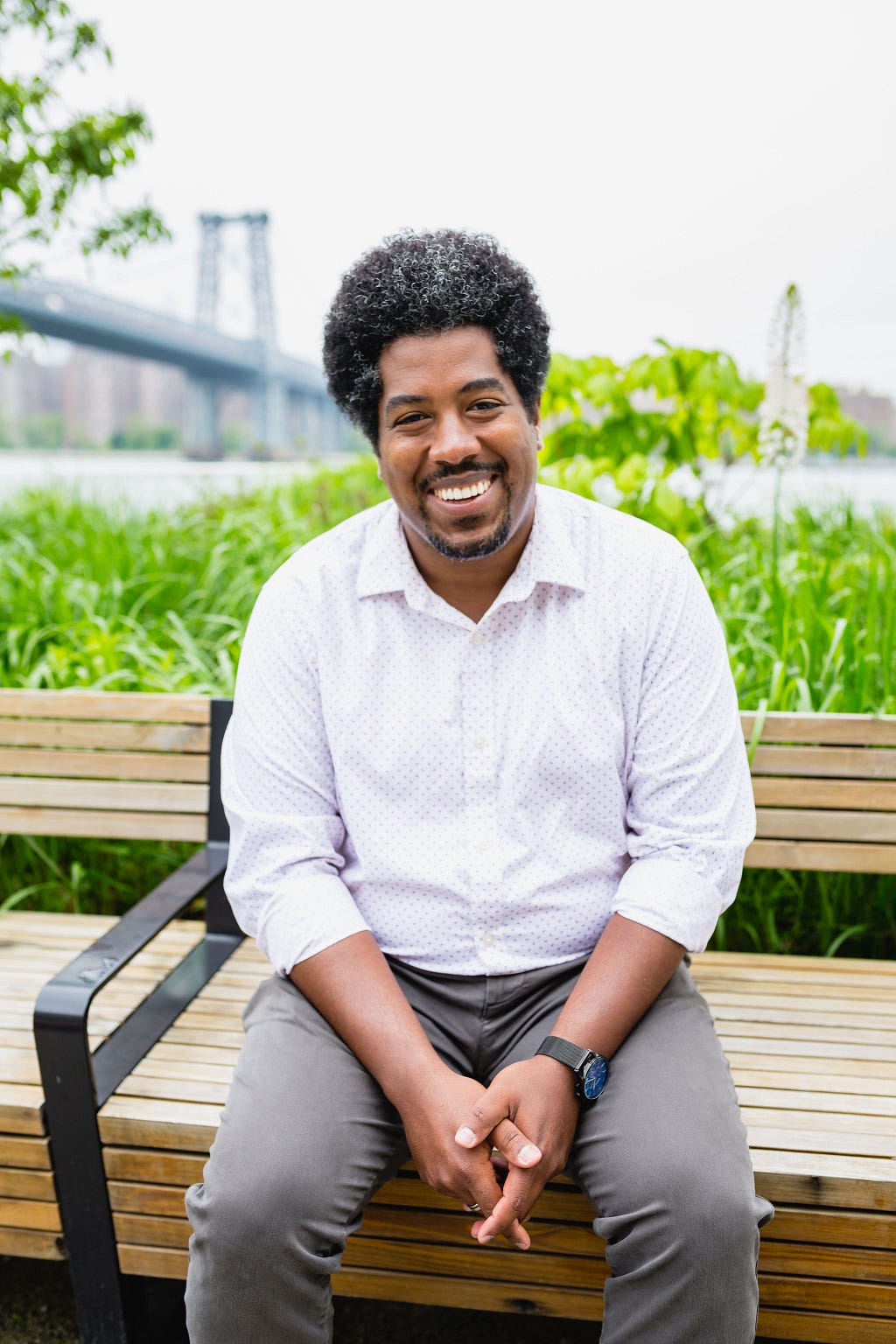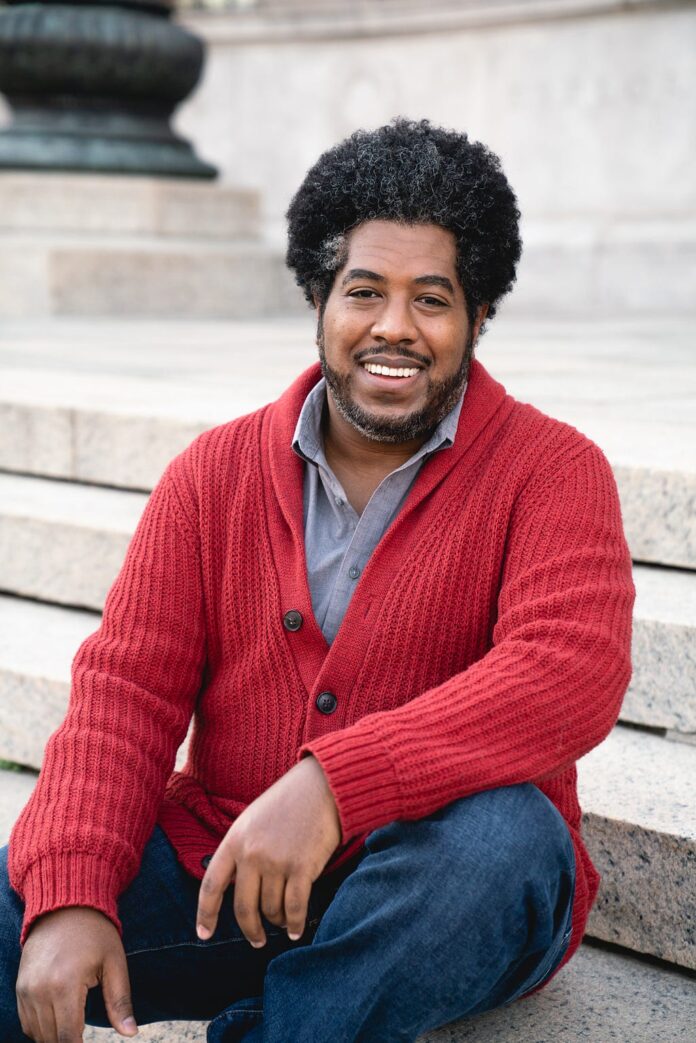Healing A Broken Mental Health System: Jor-El Caraballo Of Adams Media, Simon & Schuster On 5 Things That Can Be Done To Fix Our Broken Mental Health System
An Interview With Stephanie Greer
Therapists also have to be open and interested in supporting clients in their full humanity, and not just treat a diagnosis or illness. Mental health care is ideal when approached with a human-first and holistic approach.
The current state of the mental health system is a conversation that echoes in the halls of policy-making, the corners of social advocacy, and within the private struggles of individuals and families. As we continue to witness an unprecedented need for robust mental health support, the shortcomings of the existing system become more glaring. It is within this backdrop that we seek the insight of those who are at the forefront of behavioral health. In this interview series, we are talking to behavioral health leaders, policymakers, mental health practitioners, advocates, and reformers to share their perspectives on healing our broken mental health system. As a part of this interview series, we had the pleasure of interviewing Jor-El Caraballo.
Jor-El Caraballo is a licensed therapist and cofounder of Viva, a multi-state mental health practice. Caraballo received a BA in psychology from the University of North Carolina at Wilmington and MA and EdM degrees in psychological counseling from Teachers College at Columbia University. He has been featured as a mental health expert across many magazines and websites, including Mind Body Green, Men’s Health, Healthline, Insider, Self, and more, sharing advice and insight on self-care, interpersonal relationships, dealing with trauma, and more.
Thank you so much for joining us in this interview series. Before we start, our readers would love to “get to know you” a bit better. Can you tell us a bit about your background and your childhood backstory?
Sure, and thank you for having me! I grew up in North Carolina and went to college there until moving to New York City for graduate school (counseling). I was always a curious, empathetic kid and counseling felt like a natural fit for a profession. Since graduate school, I’ve worked in community mental health settings, group practices, and co-founded my practice Viva back in 2018.
Can you please give us your favorite “Life Lesson Quote”? Can you share how that was relevant to you in your life?
One of my all-time favorite quotes is poet Rainer Rilke’s which reads: “Be patient toward all that is unsolved in your heart and try to love the questions themselves, like locked rooms and like books that are now written in a very foreign tongue. Do not now seek the answers, which cannot be given you because you would not be able to live them. And the point is, to live everything. Live the questions now. Perhaps you will then gradually, without noticing it, live along some distant day into the answer.”
To me, it communicates how important it is to embrace the discomfort of not-knowing in the hopes of figuring out the truest version of ourselves. As someone who often prioritizes stability and certainty it is a helpful reminder to try to embrace change and allow myself to be surprised by myself in trying new things.
Let’s now shift to the main part of our discussion. It is often said that “the mental health system in America is broken”. What does that statement mean to you? From your perspective what is “broken” today?
Frankly, there are so many problems that I think begin with the fact that the United States does not have a universal health care system. While the Affordable Care Act increased access for many, I still see insurance credentialing and loss of insurance due to changing jobs as major barriers for many people in starting and maintaining therapy. Fortunately, we’ve made some ground in de-stigmatizing mental health and therapy, but we need more work to continue to do so. We need to continuously enact policies that increase access, convenience and affordability and create a culture that prizes prevention and maintenance rather than just illness response.
What about any bright spots? Do you think there are any elements that we get right in today’s world that we wouldn’t want to reverse unintentionally?
It’s incredibly encouraging to see how many more conversations we are having publicly about mental health and emotions than even just 5 years ago. We’ve come a long way and I’m hopeful for the future that continuous open dialogue can help us reduce stigma more.

In your opinion, what are the 5 most impactful things that could help heal the broken mental health system? These could be on any level including training, workforce, policy, culture, equity etc.
1 . First and foremost, I think our country needs to move to a single-payer, universal healthcare system to see mental health access improve.
2 . Insurers also have to pay therapists fairly for their expertise and work. Mental health professionals deserve to be paid more than they currently are.
3 . We also need more culturally competent therapists. This means increased training for providers and a testing and licensure process that’s equitable for mental health professionals from diverse backgrounds.
4 . I think we also need to demonstrate visibility and increase recruitment in the mental health field for often under-represented communities such as Black people, people of color, LGBTQIA+ folks and more.
5 . Therapists also have to be open and interested in supporting clients in their full humanity, and not just treat a diagnosis or illness. Mental health care is ideal when approached with a human-first and holistic approach.
If all of the items on your list were magically implemented tomorrow what change might we see in the world? What are the signs (big and small) that would show us that the system is being healed?
It may sound a bit naïve, but I think if these things were changed tomorrow we’d see many more people getting the help they need. They would be better equipped with tools to take care of their health, improve their relationships with others, and embrace lives that feel more aligned and fulfilled. I’d also like to think that we’d see communication improve across the board, especially online, where so many people feel compelled to spit criticism and disinformation with impunity.
What is a project you or others are working on today that gives you hope? How can our readers learn more about this work?
In the past couple of years I’ve also been fortunate to become an author. My latest book Self-Care for Black Men offers self-practices for a group often underrepresented in mental health care conversations. I’m very proud of it and it’s now available at your favorite bookstores!
How do you see technology shaping the future of mental health care and its accessibility?
Even though telehealth existed prior to the COVID-10 pandemic, I’ve certainly seen it become much more available since 2020. Mental health technology will continue to strengthen tools to help therapists connect with potential clients and deliver good quality care.
In your view, how do social factors like poverty, education, and culture affect mental health care and its effectiveness?
These factors are often so minimized and under-examined as factors for mental health status. Noted psychiatrist and neuroscientist Dr. Thomas Insel covers these factors in his comprehensive book Healing: Our Path from Mental Illness to Mental Health. These social factors often operate in support of, or in challenge to, our mental health and access to care. If we improve social and cultural environments and barriers to care, we see whole populations improve and thrive.
In light of the growing mental health crisis among young people, what innovative approaches or interventions have proven most successful for children and adolescents?
I’m not an expert on youth mental health but I do know that finding how to reach adolescents with the right information is going to be critical as we continue to navigate the impact of social media and how much information young people consume online. Parents, caregivers, educators and communities have to continue to find ways to reach children with accurate health information and provide secure spaces for conversations on mental health.
Are there any books, podcasts, or other resources that have helped you understand or manage your condition better?
I definitely recommend Dr. Thomas Insel’s book Healing: Our Path from Mental Illness to Mental Health. This book has certainly validated many of my perspectives on mental health care in our country.
We are very blessed that some very prominent names in Business, VC funding, Sports, and Entertainment read this column. Is there a person in the world, or in the US with whom you would love to have a private breakfast or lunch, and why? He or she might just see this if we tag them. 🙂
I’ve really grown to appreciate Justin Baldoni’s work on exploring emotions, mental health, and masculinity in his work with Man Enough. I’d love to connect with him someday and explore how we continue to give men the space to take better care of themselves.
How can our readers further follow your work online?
Readers can connect with me on Instagram @jorelcaraballo and follow my practice @vivamentalhealth on Instagram as well. I also write a bimonthly newsletter on Substack called Coffee & Contemplation that can be found at this link. My latest book Self-Care for Black Men is available in bookstores now.
Thank you for your time and thoughtful answers. I know many people will gain so much from hearing this.
About The Interviewer: Stephanie Greer, PhD is the Co-founder and CEO of Akin Mental Health — a company dedicated to guiding families on their journey supporting a loved one with mental health challenges like bipolar disorder, schizophrenia and severe depression. Stephanie is passionate about this topic from her own personal experience growing up with a mother who struggled with bipolar 1 disorder and found a path forward to overcome the obstacles and live well. Stephanie’s professional experience includes a doctorate in neuroscience as well as design research roles at Hopelab and Apple. Stephanie brings this personal passion together with her world-class science and technology background to support families across the US in their personal journeys supporting loved ones with mental illness. To learn more about Akin Mental Health and join our community, visit us at akinmh.com.
Healing A Broken Mental Health System: Jor-El Caraballo Of Adams Media, Simon & Schuster On 5… was originally published in Authority Magazine on Medium, where people are continuing the conversation by highlighting and responding to this story.


